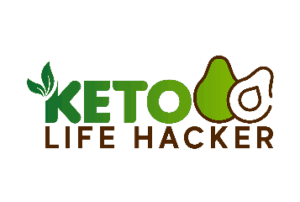Do you find yourself consistently tired throughout the days, despite getting a decent amount of sleep every night? The balance of your hormones via your adrenal glands could be the culprit.
While insomnia is a prevalent side effect of ketosis, a deficiency known as ‘adrenal fatigue’ can also present itself depending on one’s diet, stress, and other external factors.
Adrenal fatigue is characterized as a group of related symptoms that take place when the adrenal glands aren’t performing optimally. In most cases, adrenal fatigue is closely associated with intense amounts of stress, and often presents itself following stressful events for your immune system such as a flu or infection.
What Causes Adrenal Fatigue?
Your adrenal glands are small organs located directly above your kidneys, which regulate your body’s level of the hormone cortisol in response to stress. When you experience stress, your adrenal glands will release cortisol, which changes your blood pressure and heart rate to help respond to that stress. If you’re experiencing consistent amounts of stress over long periods of time, your adrenal glands can become desensitized, and start producing cortisol irregularly.
Some common causes that can contribute to adrenal fatigue include:
- Not getting enough sleep
- Working too hard/working too many hours in a given week
- Exposure to certain molds that could harm breathing/cause infection
- Lack of sufficient exercise/leading a sedentary lifestyle
- Too much exercise, thus putting your body under unnecessary stress
- Emotional trauma
- Unchecked mental illnesses like depression and anxiety
How do you know if you have adrenal fatigue?
Adrenal fatigue can be a tricky thing to diagnose, especially on your own. Many of the symptoms can be similar to that of keto-induced insomnia. However, there are other symptoms that, when coupled with this kind of fatigue, can be more helpful in identifying this disorder. These symptoms include:
- Anxiety
- Depression
- Weight gain
- Unexplained weight loss
- Low blood pressure
- Skin discoloration
- Mood swings
- Body aches
- Muscle spasms
- ‘Brain fog’
- Hair loss
- Having trouble waking up in the morning
- Having trouble falling asleep
- Experiencing intense fatigue during the mid afternoon
- Autoimmune issues
- Lightheadedness
Another effective way to accurately measure your cortisol levels are with a blood test. If you are experiencing the above symptoms and think a lack of cortisol production may be causing them, you should talk to your doctor about getting your cortisol levels checked to be certain.
What Should You Eat for Adrenal Fatigue?
The optimal diet for adrenal fatigue consists of cutting back on sugars, alcohol, caffeine, and refined carbohydrates, and scaling up your intake of healthy fats, vegetables high in antioxidants, and lean meats like chicken or salmon.
The timing of when you eat plays a much more influential when balancing adrenal fatigue and a low carb diet however. For example, intermittent fasting is not recommended for adrenal fatigue, because of the added stress it puts on one’s digestive system. Some other nutritional tips include:
- Eating a breakfast rich in protein
- Eating more carbohydrate-dense vegetables closer to the evening
- Avoiding processed foods whenever possible
Supplements for Adrenal Fatigue while on Keto
On top of changing up your diet and what time of day you decide to eat, there are a variety of supplements that can help your body regulate cortisol more fluidly without taking you out of ketosis.
Some helpful vitamins and minerals include:
Vitamins B5, B6, and B12
These B vitamins are extremely important for cell metabolism, and your body’s overall ability to convert food into energy. B5 can be used to produce what is known as coenzyme A, which contributes to the breakdown of fats. B6 helps to maintain adrenal pathways that are instrumental to the production of cortisol, and B12 helps with energy production, and maintenance of our red blood cells, which in turn helps regulate your blood sugar levels during ketosis.
With so many different benefits between the three, I personally prefer to take all my B-vitamins combined with Naturelo B Complex from Amazon.com. The B Complex vitamins also contain B1 (Thiamin) and B3 (Niacin), which support your heart and nervous system health too.
Vitamin C
Vitamin C is a powerful antioxidant vitamin that’s directly involved with the production of cortisol in your adrenal glands. Aside from the other health benefits that come with vitamin C (like boosting your immune system), vitamin C is also a vital building block for the recovery of your adrenal glands after fatigue.
I like to start with 1000mg of vitamin C and then gradually increase the dose over time. Buffered or liposomal vitamin C is usually the best way to take it, and it should always be in combination with bioflavonoids, the same way it typically forms in nature. I get my vitamin C supplement from Pure Encapsulations on Amazon.com
Magnesium
Magnesium is a great way to maintain your body’s overall energy flow. A lack of magnesium can cause a variety of symptoms such as fatigue and depression, just like Adrenal Fatigue. There are also a couple of other tell-tale signs such as muscle cramping, stiffness and insomnia.
Taking about 400mg daily a great place to start. I get mine in the form of Magtein on Amazon.com
Magnesium supplements should always be accurately measured out, because taking too much magnesium can cause some digestive problems too.
How does Keto Contribute to Adrenal Fatigue?
It’s a myth that ketosis hurts the adrenal glands inherently, but ketosis does have a high correlation with adrenal fatigue. This is because adjusting to the keto diet can cause a great amount of stress, especially with symptoms that come with the dreaded keto flu like nausea, fatigue, and indigestion
Should you go on keto if you have adrenal fatigue?
It is not typically advised for those with adrenal fatigue to go on a ketogenic diet, but that doesn’t mean it is inherently dangerous or impossible. There are certain precautions that should definitely be taken, such as minimizing stressors, and utilizing some of the supplements like the ones we have listed above.
Getting into a state of ketosis with adrenal fatigue is particularly difficult because of stress. Increases in stress lead to an increase in blood glucose levels, making it harder to enter and maintain ketosis.
So what is the best way to combat adrenal fatigue while on keto?
Sleep. You need to get enough sleep. That’s the big one.
Getting enough sleep is one of the most effective ways to combat the increased daytime fatigue from adrenal problems. Some ways to improve the amount of sleep you get include:
- Limiting exposure to blue light (cell phones, laptops, tablets) at least two hours before you plan to go to sleep
- Stopping all eating at a certain cutoff, usually 3 hours before going to bed, a similar strategy used in intermittent fasting
- Tracking your eating and exercise with your sleep schedule to ensure you’re getting enough sleep for how many calories you’re consuming. I personally use the Motiv Ring to track my sleep health. It’s cheaper than most types of fit bit and Apple Watch trackers, but it is still a tremendously amount of help.
- Limiting caffeine intake to prevent both keto insomnia and help your circadian rhythm become fully self reliant.
- Take melatonin supplements to help get you into a more relaxed state before going to bed. My personal favorite is the Luna sleep aid, which I get on sale from Amazon.
Ultimately every case of adrenal fatigue is going to be different, varying from person to person. The best thing you can do to stay on top of it while in ketosis is to keep an eye on your nutrient intake, limit external stressors, and get as much rest as you can. Check out our resource page to learn more about mastering your ketosis.

